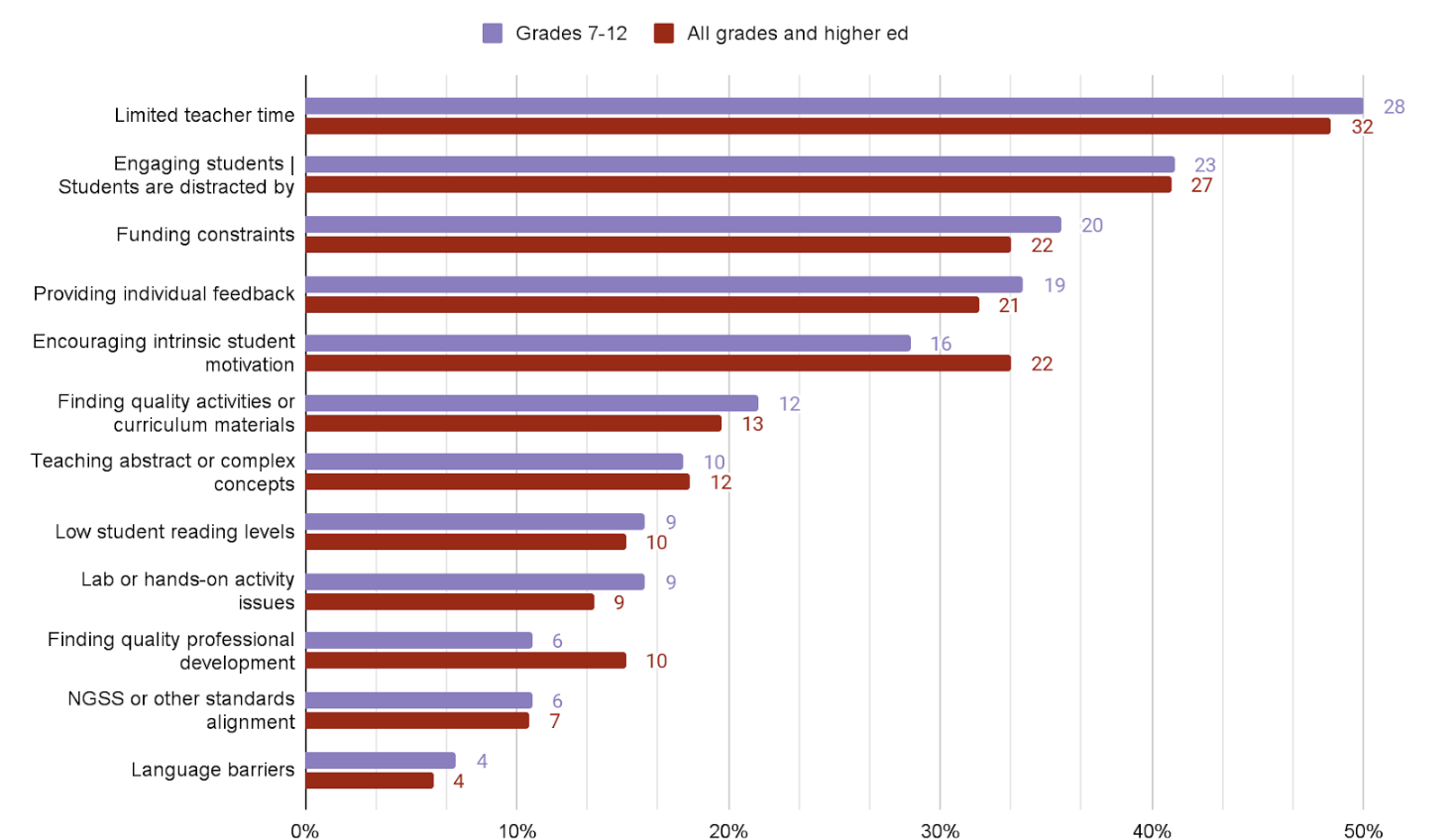Science educator challenges survey findings
In July 2023, our education team conducted a survey with 60+ science educators, primarily biology teachers, across different grade levels and higher education institutions.
The objective of this study was to gain an in-depth understanding of the challenges educators face in teaching science or STEM subjects, topics students struggle with the most, and the level of interest in incorporating VR technology into the classroom.
The findings presented in this report provide valuable insights that can inform strategies and interventions aimed at improving science education. These are the voices of our educators, reflecting the realities of teaching in today's diverse and technologically evolving classrooms.
Challenges Identified
QUESTION
What are your three biggest challenges teaching science or STEM subjects?
Top 3 challenges identified by 35-50% of teachers surveyed at all levels:
Limited teacher time
Engaging students/student distraction
Funding constraints
Providing individual feedback and encouraging intrinsic student motivation are also major concerns.
Hard-to-teach Topics
QUESTION
Out of all the concepts/topics/standards you teach, what do students have the most trouble understanding?
From the free responses given by the 60+ science teachers, the common topics that students have the most trouble understanding are:
Abstract concepts
Complex calculations
Scientific thinking and reasoning.
They also often have difficulty understanding and remembering detailed processes, particularly at the molecular level.
These challenges might reflect the need for additional support in understanding abstract concepts, mathematical reasoning, and the development of a more holistic understanding of science.
VR Interest and Barriers to Adoption
QUESTION
How interested are you in incorporating VR content in your classroom?
There is a clear interest among teachers in incorporating VR content in classrooms. However, the biggest barrier to VR adoption is budget constraints, with 74% of teachers identifying this as a major challenge.
Other significant barriers include finding appropriate materials, integrating VR with existing systems, technical learning curves, and limited teacher time.
QUESTION
What do you think would be the biggest barriers to using VR in the classroom?
Additional Insights
The open-ended feedback shows a diverse range of experiences and attitudes towards science education. Several teachers have expressed interest in advancing VR, especially for conceptual modeling and visualization. However, some educators expressed concern about the effectiveness of VR, suggesting that learning impacts should be measurable.
It's also noted that technology should not undermine the importance of the content.
One participant highlighted the fact that they teach in a Title I school where many families are from low socio-economic backgrounds, and since COVID, reading and writing levels of students have been lower than expected. This implies that addressing literacy issues is a key aspect of improving science education in today’s times.



